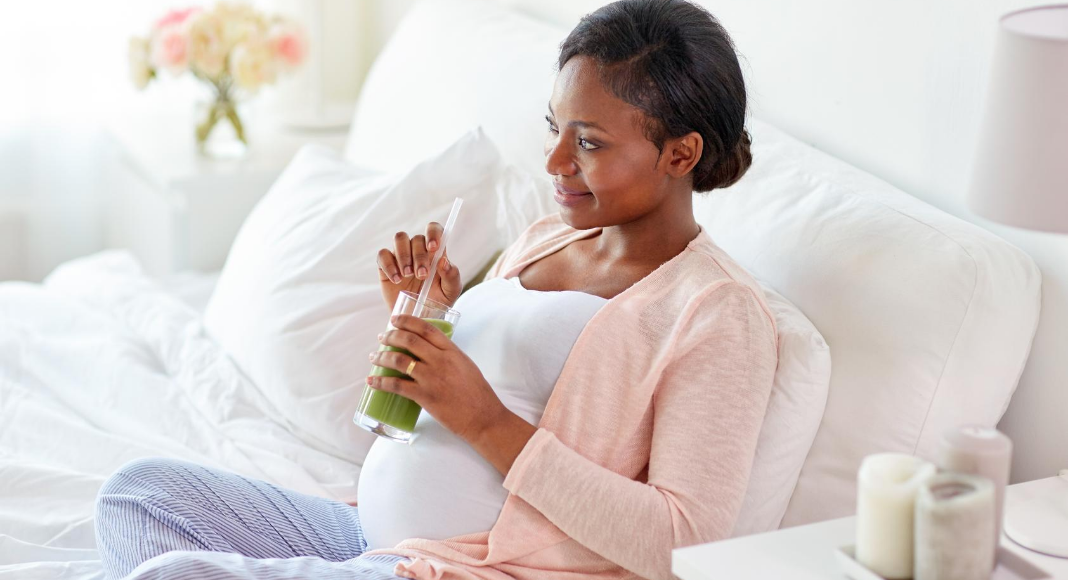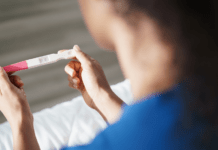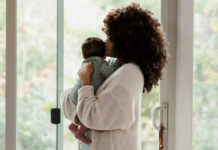 Ten percent of pregnancies in the USA are affected by Gestational Diabetes G. It is something that doctors can typically manage with either diet and exercise, or with medication for mom and baby to be healthy. However, that does not mean it is not still scary, and major life adjustments while six months pregnant are not tough! But, I did not have to deal with this until recently. I have learned a lot about GD over the past month – let me tell you about my journey…
Ten percent of pregnancies in the USA are affected by Gestational Diabetes G. It is something that doctors can typically manage with either diet and exercise, or with medication for mom and baby to be healthy. However, that does not mean it is not still scary, and major life adjustments while six months pregnant are not tough! But, I did not have to deal with this until recently. I have learned a lot about GD over the past month – let me tell you about my journey…
During my first pregnancy, testing for gestational diabetes was a breeze. Most of my preparation centered around the fuss about how disgusting the drink was – and yes, it was overly sweet, but it only lasted a few minutes. No big deal, right? Once I passed the test, I really did not think twice about it or what it meant. I just moved on to the next step in my pregnancy.
So, during my current (second) pregnancy, when my 28-week appointment came up, I read the instructions for the test, fasted for a couple of hours as recommended, and went to my appointment without a care in the world. Like my first pregnancy, I craved orange juice, fries, and more chocolate than usual, but since I did not have an issue the first time around, I expected the same outcome…. then the results came in.
I failed my One-Hour Test and a week later I failed the Three-Hour Test. Before I knew it, I was meeting with an endocrinologist to learn more about how to use a glucose monitor while trying to get comfortable with the next 3 months of bruised fingertips – all in addition to the new diet I had to follow. It all felt surreal and extremely unfair. But then again, everything has seemed harder this pregnancy. Why was I surprised? From being diagnosed with hyperthyroidism, to having morning sickness, to suffering from pregnancy insomnia, this pregnancy has been very different to the exceptionally smooth first one. And now, we are adding GD to that list.
Here I am at 33 weeks, counting carbs, avoiding sugar, pricking my fingers four times a day, and exercising every evening to try keep my levels at a safe level (and to try to avoid taking insulin shots).
I’m a few weeks in, and here is what I’ve experienced so far:
Guilt
From the moment, I failed the glucose tests, I felt an immense sense of guilt. What have I done wrong? What did I eat that messed up my glucose levels? What if my actions have harmed my baby? What if my baby will end up having long term consequences because of me? What if my health is forever affected? I started googling for hours on end and it really took me to a dark place. I was devastated.
To be honest, I was very upset about the whole situation, and before seeing the specialist, I decided to make changes to my diet and took all sugars and carbs out of my diet. And while being proactive about my health is a great first step, I don’t recommend making rushed changes without seeing a specialist – as I did. For days, I had not eaten any carbs as I just assumed that I could follow a keto diet – and that was not healthy at all. Carbs are essential during pregnancy and I needed to meet with the dietician to better understand how to go about it.
Self-Pity
When my doctor explained, based on all the tests, that my diagnosis is most likely a result of just being pregnant and I did not do any wrong, the feeling of guilt was replaced by self-pity. I started playing the victim card: I eat better than most people, I don’t drink soda and sweet drinks, I love my fruit and veggies etc. Pregnancy is meant to be a time of indulging craving and I was sad to have to follow a diet. Translation: “Why me?!”
I understand that hormones will work differently every pregnancy but I felt sorry for myself – which was not helping me address the situation in a healthy, positive way. And, because I was already into my third trimester, the doctor was clear that I did not have much time to lower my numbers with a new diet and exercise and I could end up on insulin, in a few weeks.
Angst
Then… reality hit me, and it was extremely overwhelming. Even though I don’t eat sugar often, we do enjoy carbs with our meals and I didn’t know where to start. While I was too embarrassed to ask questions, I had so many resources at my fingertips.
Don’t hesitate to ask for help, changes and transitions are not easy, but once you do it for a couple of weeks it will starts to become your new normal. You will probably have access to a dietician – make sure to meet with them and ask all your questions. They will be able to share some great tips on how to make these changes smoother. I even joined a great Facebook group Gestational Diabetes Support Group – it is a group of (expecting) mothers who share their ideas and experiences. They are not medical professionals but I was able to get some really good ideas for snacks and meals to incorporate in my diet. For example, I am able to search the group for suggestions of brands that could work into my diet such as Kodiak Cakes (Carb-Conscious Buttermilk), Premier Protein, and Barilla Protein + for pasta cravings. These suggestions are higher in protein and lower in carbs which work perfectly for a GD diet.
Self-Care
I am a few weeks in to my new routine and I am starting to find a new balance. And, to be honest, I’ve found it to be a positive change. I rotate a few meals that work for me, I try to mix up my snacks, and I focus on my water intake. I hadn’t realized how dehydrated I had been lately. However, the biggest change was my compulsory daily exercise. Part of my gestational diabetes management is to incorporate for 45-60 mins of exercise a day – contrasted with almost zero beforehand – except of course to chase after my toddler!
After dinner, my husband and toddler have some daddy/son time and do bath time and bedtime without me while I unwind a little and focus on exercising: I either go to the basement to do a relaxing yet toning prenatal yoga session or I go for a walk and listen to a podcast. Not only am I focusing on my physical health, but I am also having some much needed “me” time. Spending time alone walking in my neighborhood and listening to a podcast or doing a yoga session has done wonders for my well-being. Need some suggestions for great podcasts during your walk? Check these out. Or, if you are into true crime like me, you’ll love this list.
While not ideal, Gestational Diabetes is starting to be more and more manageable for me and has instilled some healthy habits that I plan to carry on after I have this baby. But, I am still impatiently waiting for the huge plate of sushi as my first meal postpartum!

















Thanks for not letting me think I’m the only one in Wichita!